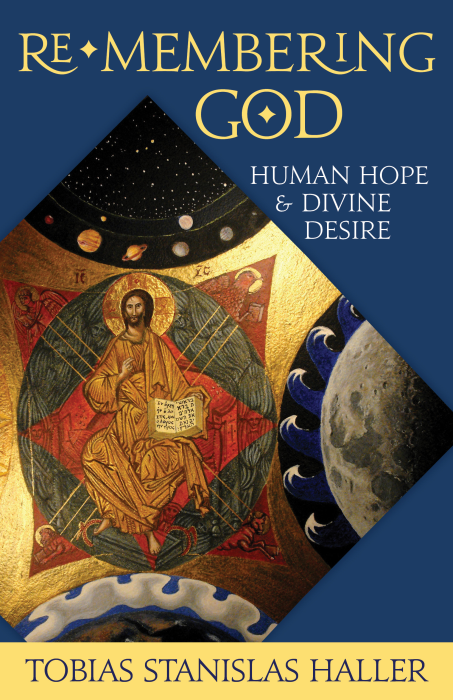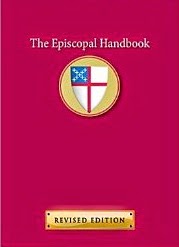Words Made Flesh
The website for the Continuing Indaba and Mutual Listening Process is now up on line. Some on the extremes of the church divide may well say, "What good is all this talk?" One side will say, "Delay is denial," while the other will say, "How can I converse with those with whom I disagree?"
Fortunately, there are others who know that it is in conversation with one another that we come to appreciate one another even if we continue to disagree with each other. Respect and forbearance are, after all, virtues in and of themselves — and even if we think our interlocutor may lack some other virtue, and she think the same of us, at least in continuing the conversation we are both incarnating a clear and definitive virtue between us.
More importantly, the overarching purpose for this continuing conversation is not conversion but mission: we are not out to produce Right Thinking in each other, but Right Action by and with each other — action right and righteous not simply on our own estimation but in fulfillment of the divine command to carry out the works of mercy; which we can do most effectively when we pool our resources in cooperative ventures. Thus are words made flesh, as at the first, while we were yet sinners, the Holy One deigned to come among us as our guest, and spoke with us, even in our ignorance, on the road of our pilgrimage.
Tobias Stanislas Haller BSG








10 comments:
"It is in conversation with one another that we come to appreciate one another even if we continue to disagree with each other."
I wish I were so confident.
D-P, it won't work in all cases, where there are barriers aforehand and folks have taken to the ramparts, but where there is willingness to engage, there is hope. As with the bishop who was asked if he believed in infant baptism, and responded, "Believe in it? Why, I've seen it!!" -- so too I have seen productive rapprochement take place among parties I would never have guessed it of. Check out the materials at the website, including the resources from Kenya, and the report from the conversation that included Liverpool and Nigeria.
Tobias, the site is not easy to navigate. I read the Kenya section, and I see how indaba might be useful for resolving conflict and achieving reconciliation, especially as a way to get out of the rut of the same old, same old types of discussions - and, of course, then move forward into mission.
But there must be an openness and a desire to stick together and work together, which, unfortunately, is not present with the groups who have already walked away or who are threatening to walk away.
Mimi, I think you are correct on all counts. The ones who have "walked apart" show little hope of change -- though they may think better some day; those making threats may simply be "crozier-rattling" to stake out a position, and get attention.
Ultimately the Anglican Communion is about relationships, not law -- even were the proposed Covenant to be adopted --- so it is only relationships that will suffer or prosper in the long run. Those who wish no longer to be in relationship are thus engaging in a kind of self-fulfilling prophecy; stopping the conversation stops the conversation!
I believe that many of these divisions will be healed in time. My hope is that the Indaba may prevent some of the divisions from happening, and may promote the healing of some of those that already have happened. People sometimes argue against "Band-Aid" solutions -- but there are times when Band-Aids are effective!
It's a lovely sentiment, Tobias, but it won't work and will simply make things worse. Sometimes, a few generations apart is the only way to heal the wounds, and these are too deep to talk away.
I hate to be one of the naysayers, Fr Tobias, but my fear is that the "dialogue" insofar as it does take place threatens to become onanistic and become a self-perpetuating enterprise. As long as we keep talking we don't have to do anything potentially divisive. At what point does dialogue become simply a conservative filibuster with a friendly face?
Mark and Geoff. I remain more optimistic than you, in part because I've seen the fruit of the work. It is quite true that the divisive stuff will continue along with the dialogue; but I also think that the arc of the process is positive and is not merely dilatory. It will be a generation, at least... but I see the signs of dawn against the ridges.
I wish you well in it, but can't go with you. It's a waste of time and will only make things worse.
Tobias, as I have said elsewhere, I fear that prisms of how we define personhood have already undermined the structures we thought were there. I believe conversations among those who will talk are very important. Indeed, while I appreciate what Mark and Geoff have said, I think we will only have the possiblity of talking again in a generation if those who are willing to talk continue talking now. I agree that much handwringing over the institutions is pointless: not only is the damage done, but we are all convicted of our relative positions. So, no, in the short term indaba and other discussions won't accomplish much. However, I think we need to participate now if in the long run we wish to accomplish anything at all.
Thank you, Marshall. That is much what I'm trying to say: it is the conversation, not the institution, that is important. Even while the institution shatters and reforms over the next two generations (that's my guesstimate...) continuing the conversations will help to provide a context in which that restructuring can happen and healing can take place. As I said above, a Band-Aid is only a Band-Aid, but it is a Band-Aid! And to further the tautology, only those who are interested in talking will talk. I certainly see sectors of the present Anglican Communion splintering off and perhaps never rejoining --- see my post today about Puritanism. But those who are truly interested in diversity and fellowship will be helped by this dialogue, and perhaps even those who separate themselves -- when they find themselves alone -- will finally notice that there's a party going on to which they have been invited and it is only their own obstinacy that keeps them outside in their Pure Land.
Post a Comment